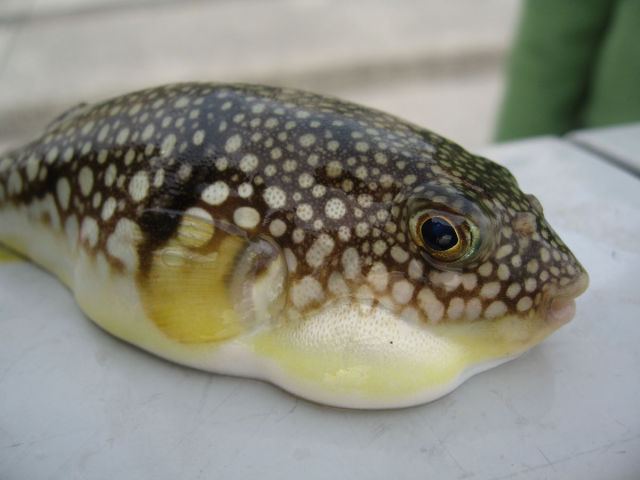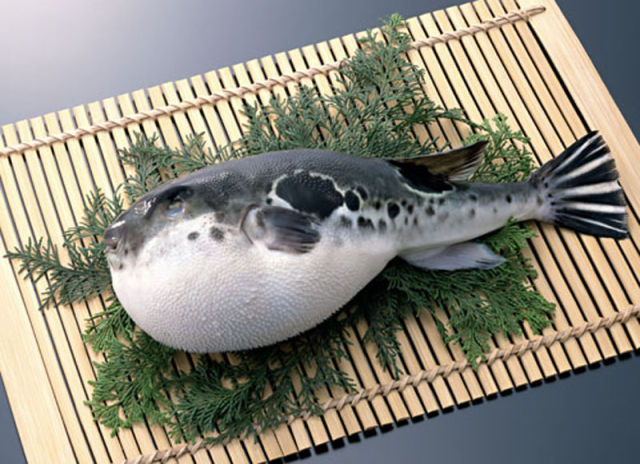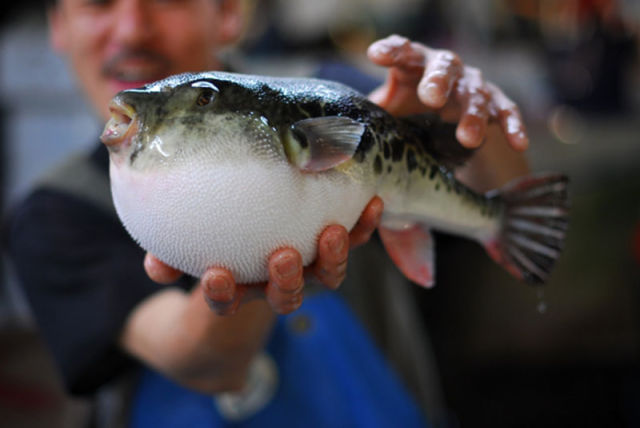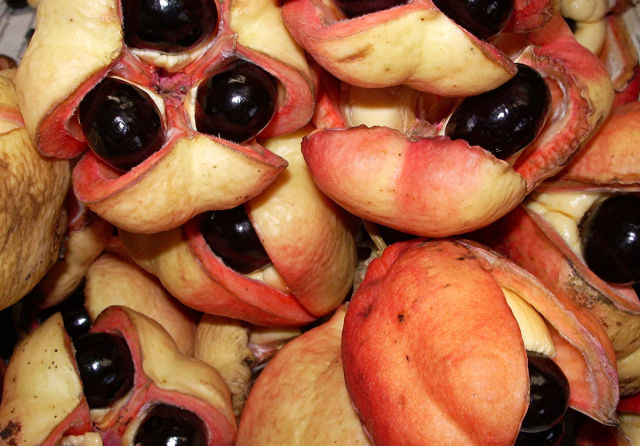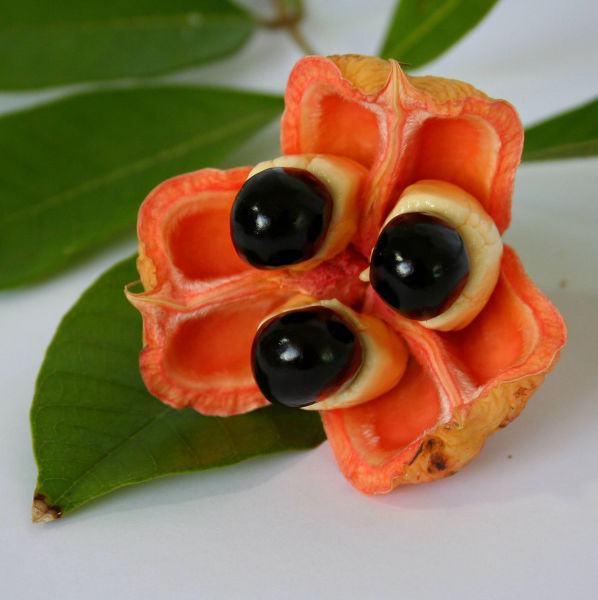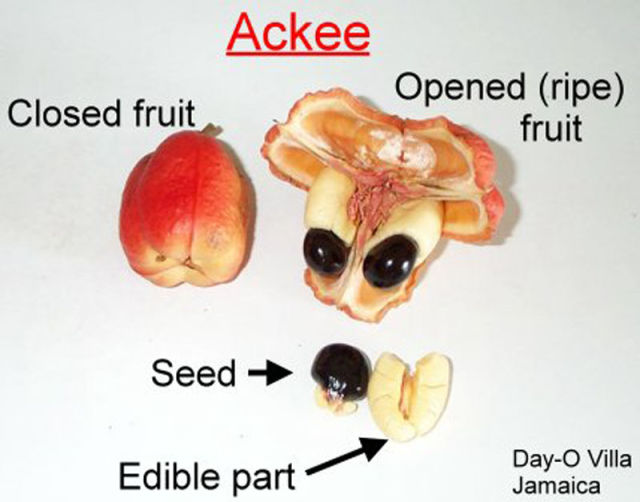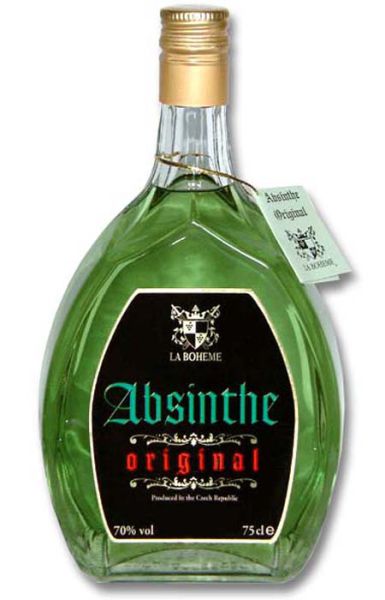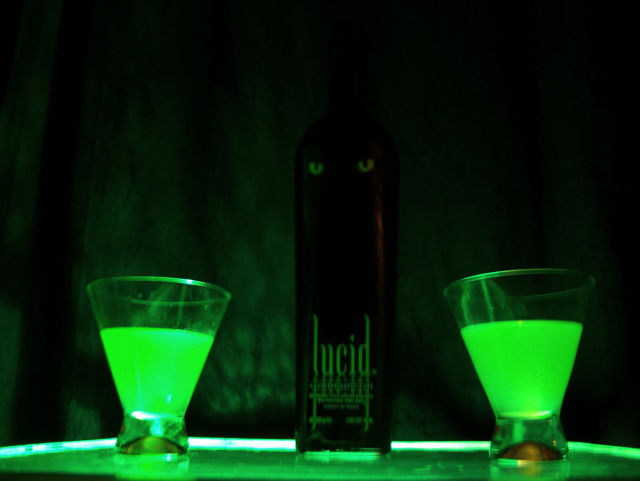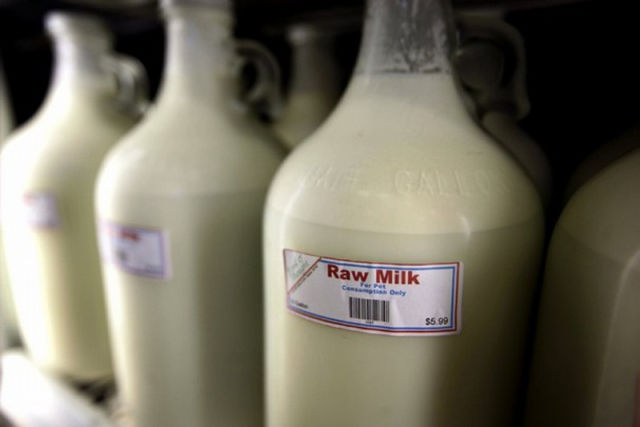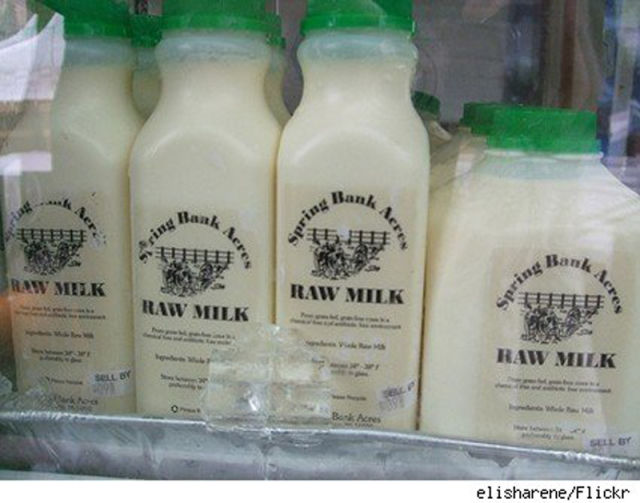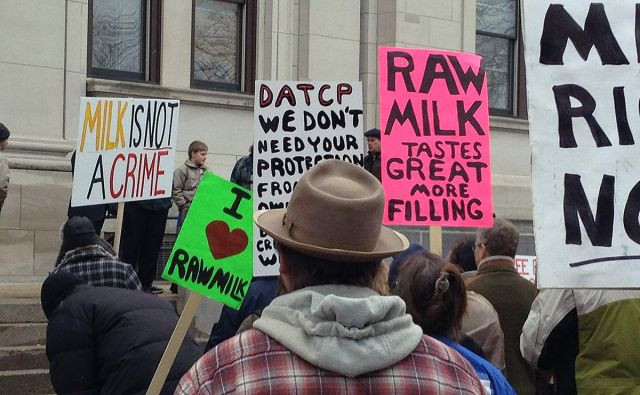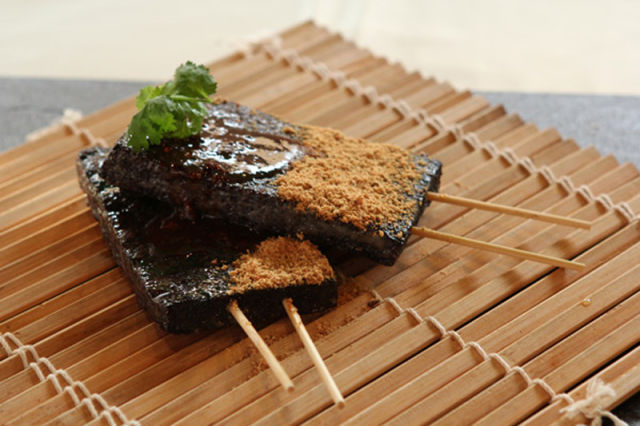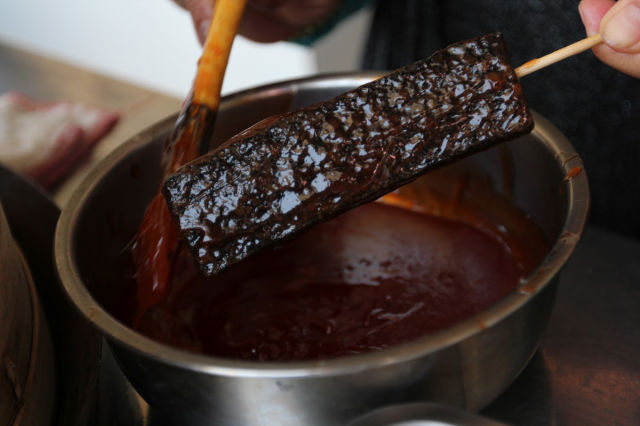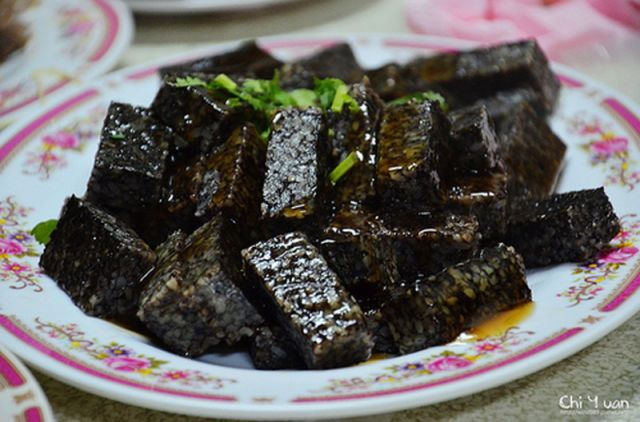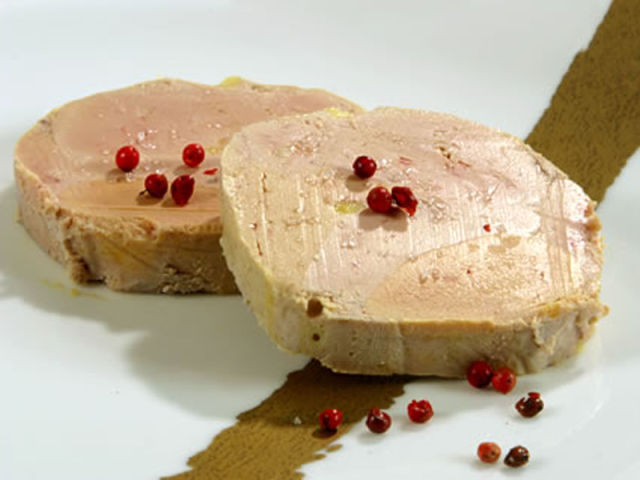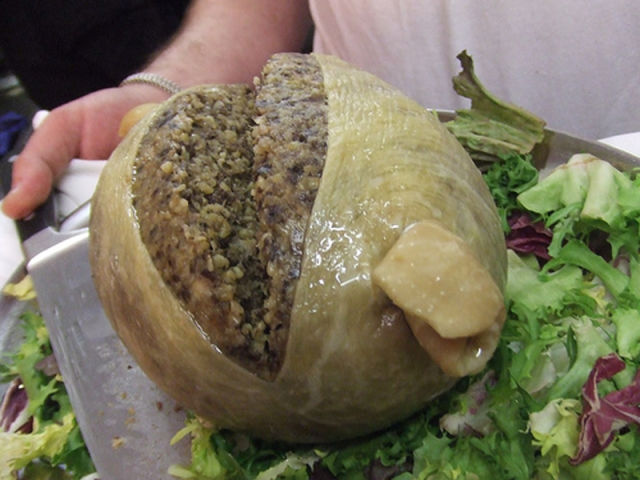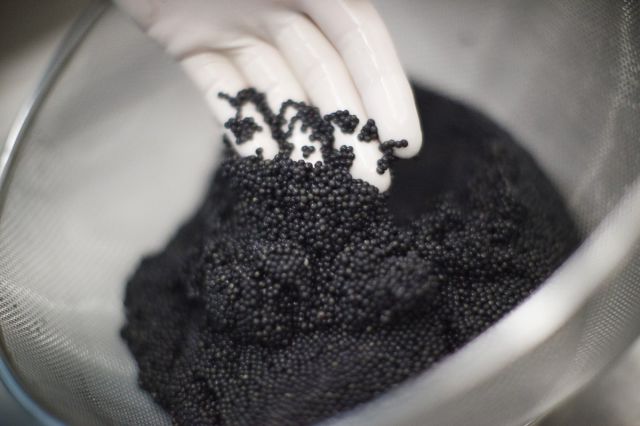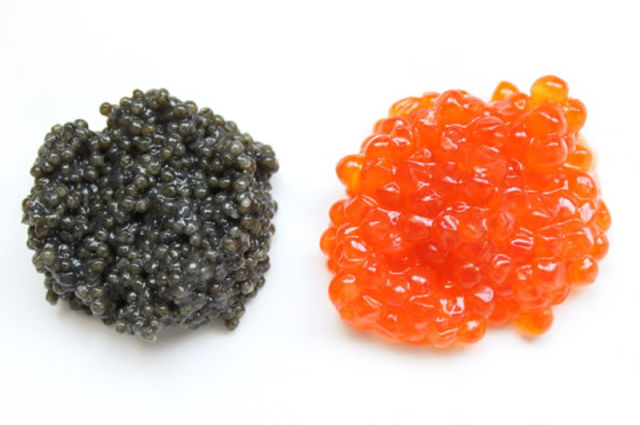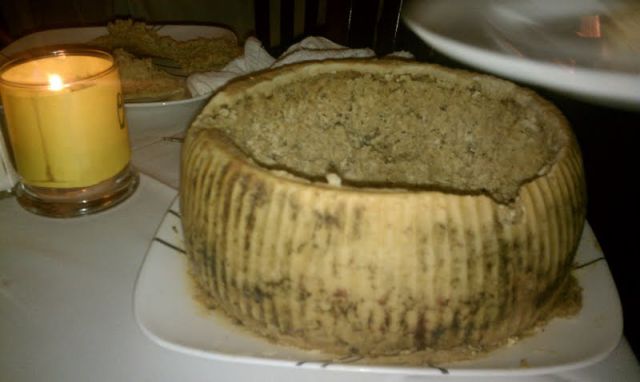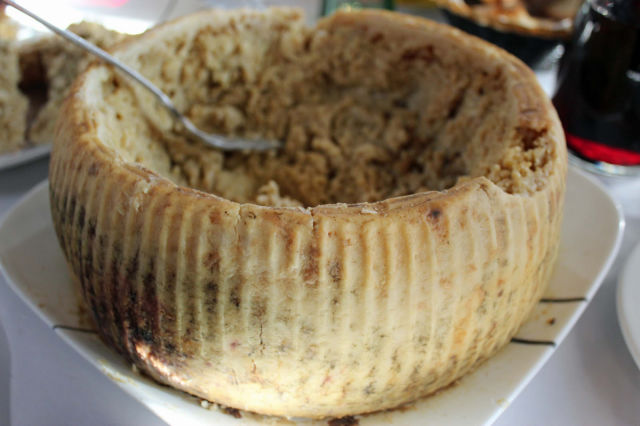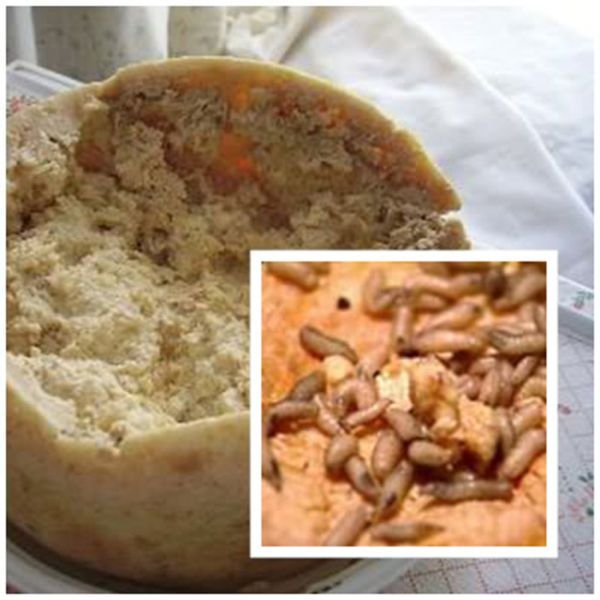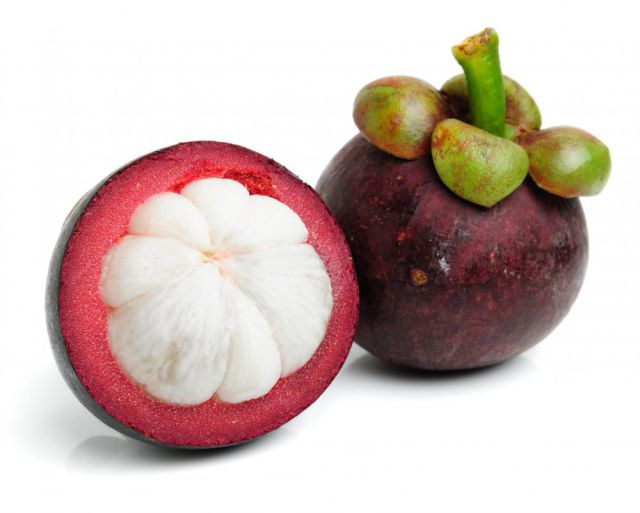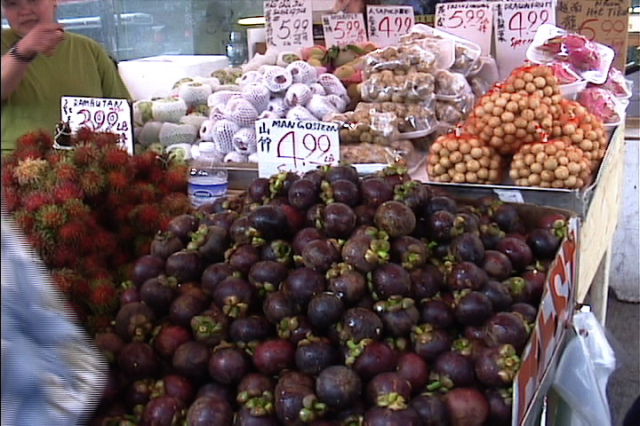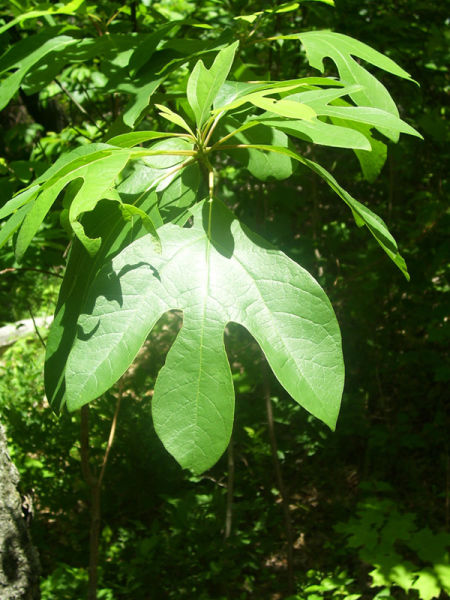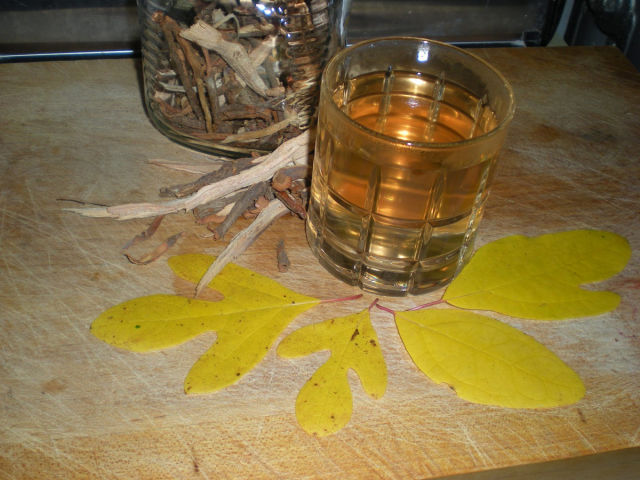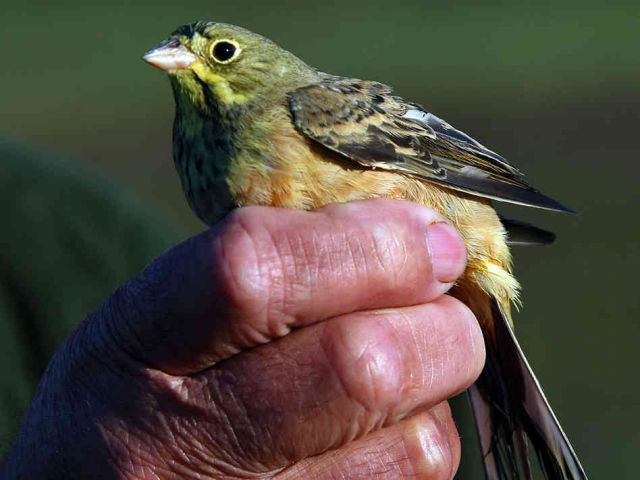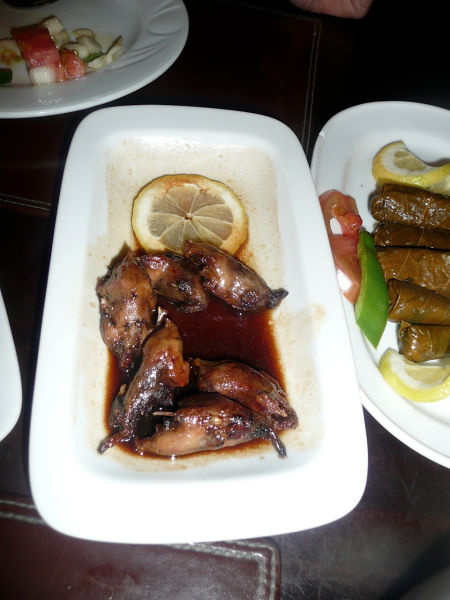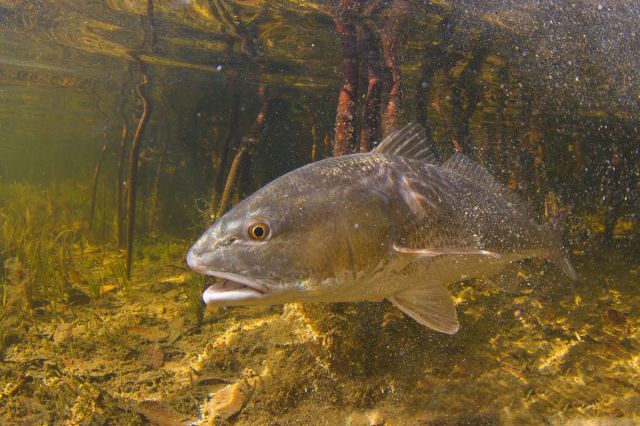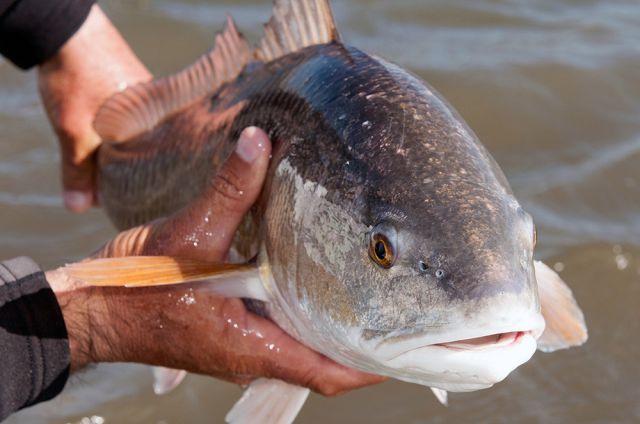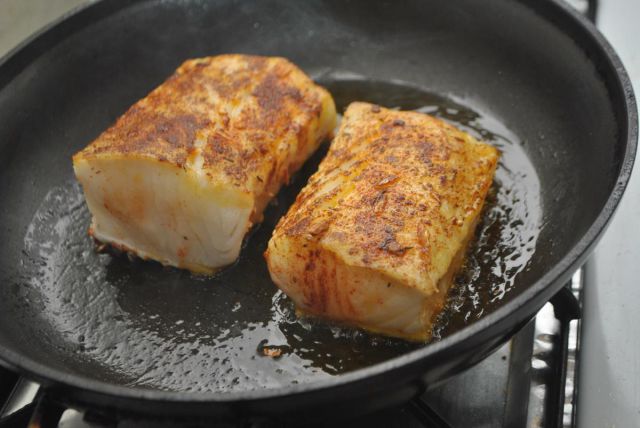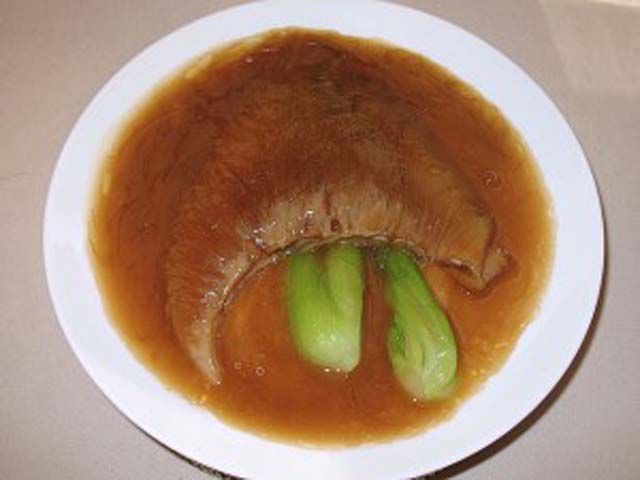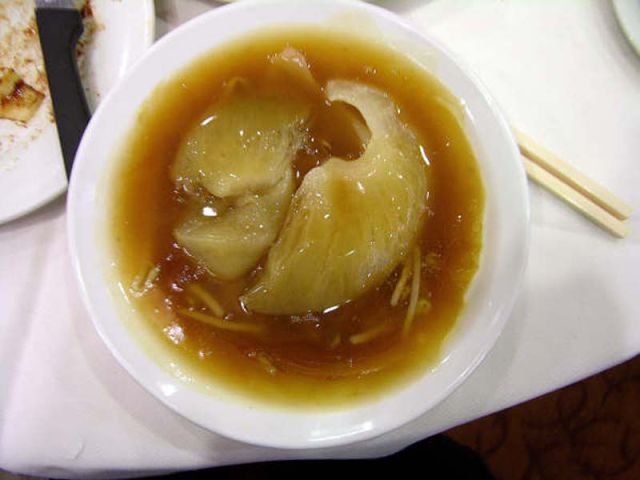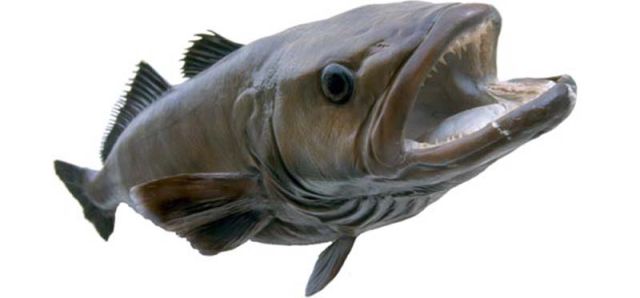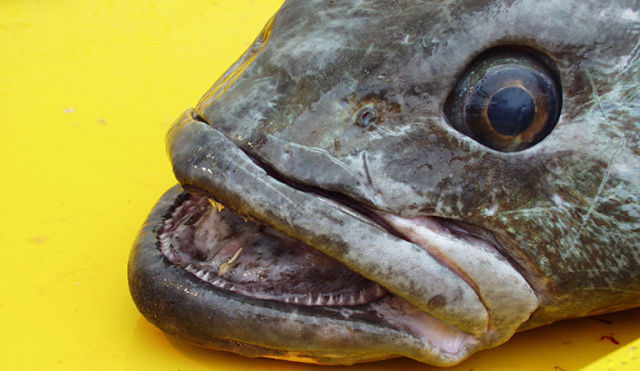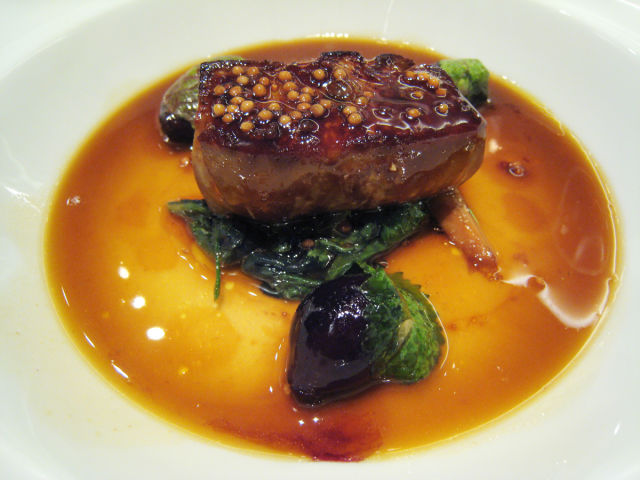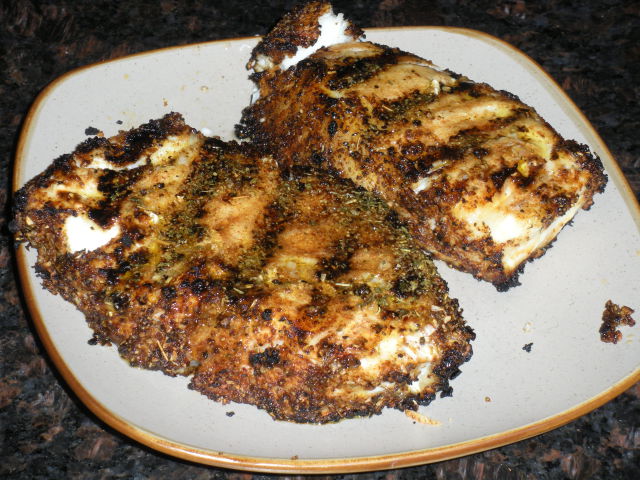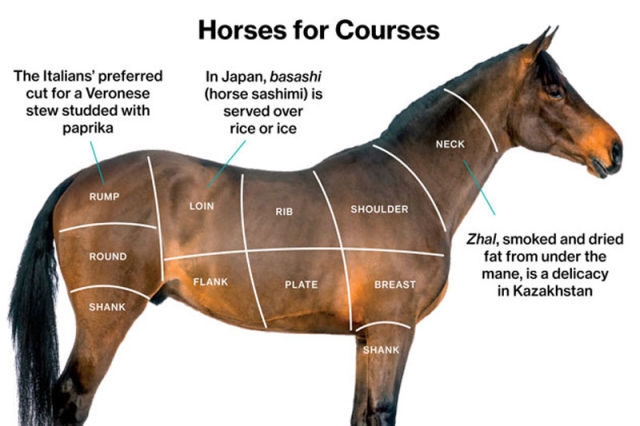- 3 Like
Foods That Are Banned in the USA (41 pics)
Banned: It is illegal to sell, harvest, or serve puffer fish in the U.S. without a license. Sale and consumption are strictly prohibited in the European Union.
Reason: This fish has a killer taste literally. The puffer fish's skin and certain organs contain tetrodotoxin, an extremely poisonous toxin that can paralyze a human and lead to asphyxiation.
However fugu, as it is called in Japanese, has been eaten for hundreds of years in Japan, where expert chefs serve it as a delicacy.
Ackee
Banned: Importation of the raw fruit is banned in the U.S.
Reason: This pear-shaped fruit the national fruit of Jamaica contains toxins that can suppress the bodys ability to release an extra supply of glucose, plunging one's blood sugar level and potentially leading to death.
Controlled: Forbidden in the U.S. in the early 20th century, absinthe was permitted back into the country in 1997 however, importation is subject to U.S. Food and Drug Administration regulations.
Reason: This highly alcoholic drink derived from herbs, including wormwood, fell under a strict ban as it was thought to be an addictive hallucinogen.
Certain classes of absinthe were allowed into the U.S. in 1997, when the FDA ruled that imported containers of the drink are legal if they contain less than 100 parts per million of thujone, a toxic chemical present in wormwood.
Unpasteurized Milk Banned: Twenty-one states ban the sale of raw milk. Some states permit sale in stores, while others only allow sale direct from farms in small quantities.
Reason: Unpasteurized, or "raw" milk was a household staple in U.S. homes before late-19th-century implementation of pasteurization techniques intended to make milk safer.
Laws banning raw milk are meant to protect consumers from harmful bacteria, but proponents of raw milk argue that current standards in farm sanitation make the unpasteurized liquid safe to drink.
Pig's Blood Cake.
Pig's Blood Cake is a Taiwanese delicacy it's a mix of pig's blood and rice on a stick.
Even though those ingredients are probably healthier than whatever goes into a hot dog on a stick, pig's blood cake still gets the ban in the U.S. for being unsanitary.
Foie GrasBanned: Banned in Chicago, IL, from 2006 to 2008.Reason: In 2006, Chicago City Council members banned foie gras in restaurants. The council declared the process of force-feeding part of the preparation to fatten the geese inhumane. The city repealed the ban two years later. A law preventing force-feeding will go into effect in California in 2012.
Haggis has been banned in the U.S. for more than four decades because one of its key ingredients is sheep's lungs, and our government doesn't want us eating those. It also contains a sheep's heart and liver, and is cooked in a sheep's stomach, but those are all, apparently, cool for us to eat.
Wild Beluga CaviarBanned: Prohibited in the U.S.
Reason: Wild Beluga caviar, which comes from the wild Beluga sturgeon, once achieved a popularity that led to dangerously low numbers of the eggs. In 2005, the U.S. Fish and Wildlife Service banned the caviar.
Casu Marzu Banned: Forbidden in the U.S.
Reason: Casu marzu, a traditional Sardinian cheese, develops when cheese fly larvae are introduced into Pecorino to promote advanced fermentation. As the larvae hatch and eat through the cheese, it softens.
Diners have to dig in before the maggots die. Casu marzu, like many unpasteurized cheeses, is banned in the U.S.
Mangosteen Controlled: Once banned in the U.S. today imports must be irradiated.
Reason: The purple mangosteen, a coveted fruit in Thailand, was once banned in the U.S. because officials feared importing the fruit would introduce the Asian fruit fly into the U.S. The ban was lifted in 2007, but imported mangosteen must first be irradiated to rid it of the fruit flies.
Sassafras OilBanned: In the 1960s, the FDA banned the use of sassafras oil, mostly composed of safrole, in foods and additives.
Reason: Sassafras oil extracted from the dried root bark of the sassafras tree was once a popular ingredient in tea and root beer. But after scientific evidence deemed safrole a potential carcinogen, the FDA implemented its ban, which is still in place today.
Ortolan Banned: Protected species in Europe. Smuggling the bird into the U.S. is a crime.
Reason: This tiny bird has a rich history in France, where gourmands have enjoyed ortolan so much that the population has severely declined since the 1960s. Selling ortolan in France is now illegal. But that wasn't the case when the late French president Franois Mitterrand famously feasted on the bird during his "last supper" on New Year's Eve in 1995.
Redfish Banned: Sale for profit is banned in all U.S. states except Mississippi. Most states with fishing laws regulate catching redfish for personal use.
Restaurants served up so many dishes that the redfish became endangered.
Shark Fins Banned: "Shark finning" is banned in the U.S. Fins can comprise only 5 percent of a fisherman's total shark haul.
Reason: Shark finning removing the fin and dumping the shark back into the ocean is illegal in U.S. waters. Consuming shark fins is legal as in the Chinese dish shark fin soup pictured but the dishes are usually very expensive. Most shark fins gathered in the U.S. are exported to Asian cities.
Chilean Sea Bass Controlled: Only sanctioned sources are authorized to sell Chilean sea bass. The FDA issues compliance numbers to boats that are officially permitted to catch the fish.
Reason: You can consume legally caught Chilean sea bass in the U.S. But overfishing has endangered the species, leading Seafood Watch, which encourages sustainable ocean life, to put it on its list of fish to avoid.
France, especially, has strict regulations for capturing Chilean sea bass off the coast of the country's islands in the Indian ocean.
Uncertified Chilean sea bass is banned in the U.S. and more than 24 other countries.
Horse Meat Banned: Consuming horse meat is technically legal in most states however, slaughtering horses for human consumption is banned in the U.S.
Reason: It's unlikely you'll find horse meat on a restaurant menu in the U.S., but it's regularly consumed in parts of Asia, Latin America, and Europe. At one time, slaughterhouses in the U.S. provided meat for human consumption in other areas of the world.
But in June 2010, Congress voted to extend the Wild Free-Roaming Horses and Burros Act of 1971 to prohibit further slaughtering.







Tags
Archives
- October 2024 (92 entries)
- September 2024 (111 entries)
- August 2024 (135 entries)
- July 2024 (133 entries)
- June 2024 (140 entries)
- May 2024 (155 entries)
- April 2024 (145 entries)
- March 2024 (146 entries)
- February 2024 (143 entries)
- January 2024 (148 entries)

